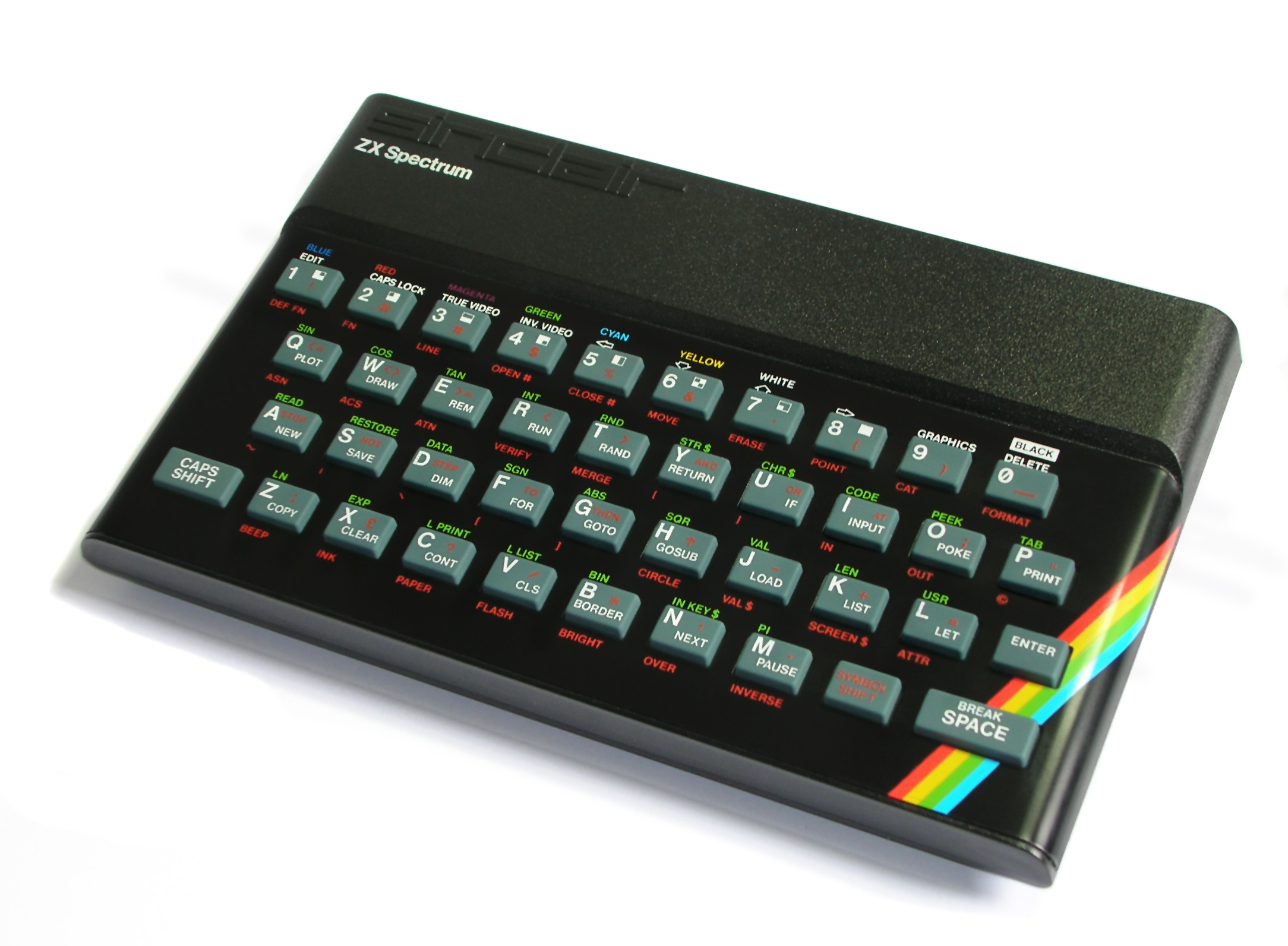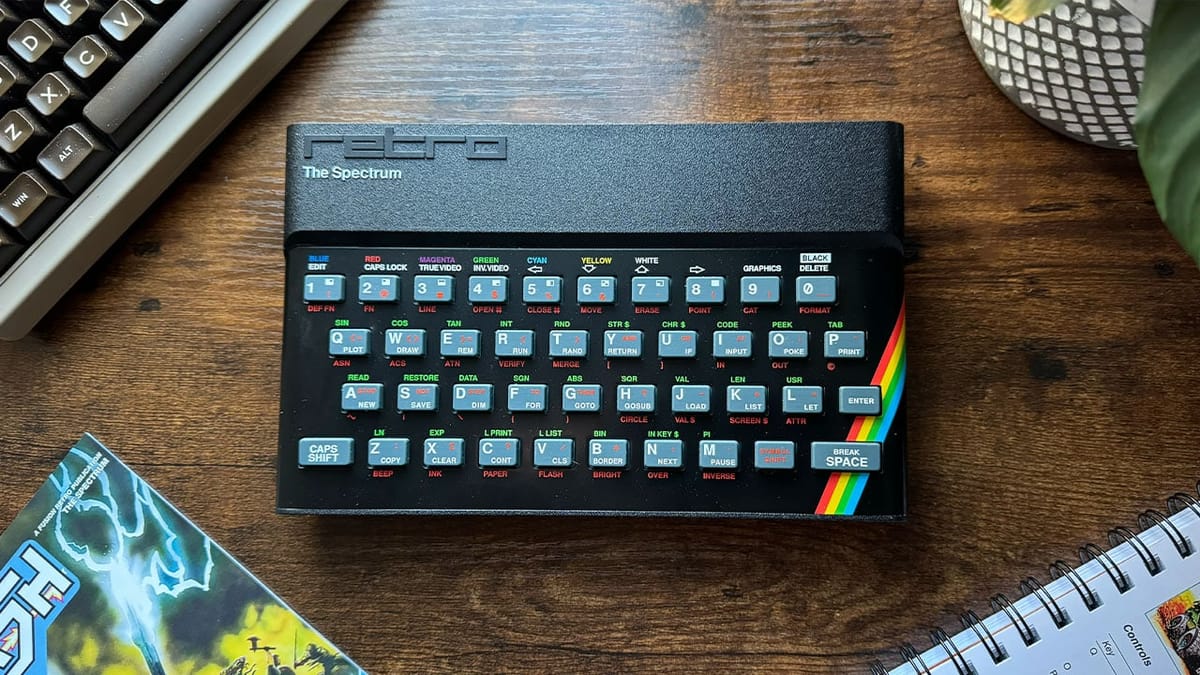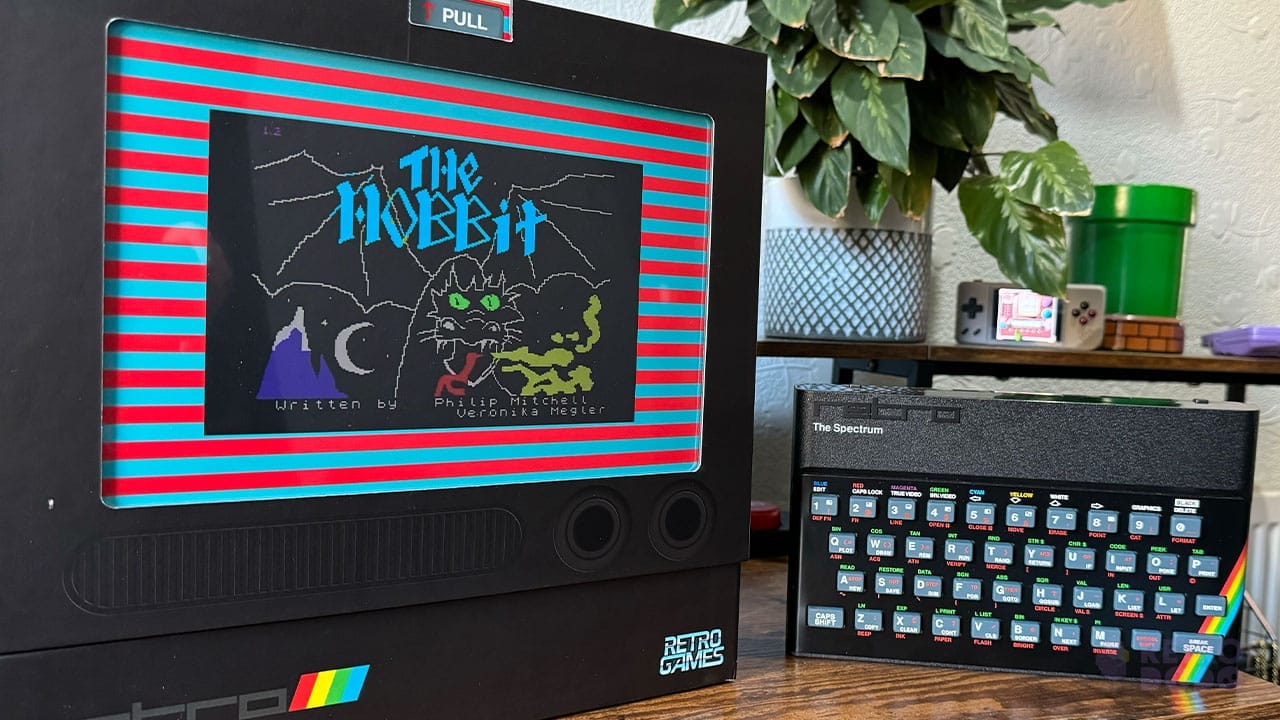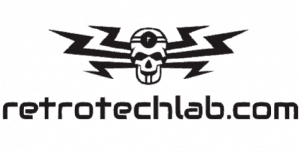The ZX Spectrum maintains a passionate cult following in 2025, with active communities on World of Spectrum, Reddit’s r/zxspectrum, and Spectrum Computing forums driving new game development, hardware modifications, and preservation efforts. This iconic British computer from 1982 continues inspiring developers and collectors worldwide, creating one of the most dedicated retro computing communities that refuses to let Sir Clive Sinclair’s revolutionary machine fade into history.

Table of Contents
The Enduring Community Appeal: More Than Just Nostalgia
The ZX Spectrum’s community devotion transcends typical retro computing enthusiasm. Unlike other vintage platforms that rely primarily on nostalgia, the Spectrum community actively creates, innovates, and pushes boundaries on 40-year-old hardware. This unique characteristic stems from the machine’s original design philosophy: maximum capability within extreme budget constraints.
Spectrum by the Numbers (2025):
- 5+ million units sold: Dominated British home computing in the 1980s
- Active online communities: 50,000+ members across major forums
- Annual homebrew releases: 100+ new games created yearly
- Preservation efforts: 30,000+ software titles archived online
- Modern hardware projects: 10+ active FPGA and clone developments
- Educational programs: Growing use in programming education
The Spectrum’s cult following reflects British ingenuity and resourcefulness—values that resonated with a generation of bedroom programmers who learned to create extraordinary experiences within severe technical limitations. This creative constraint culture continues attracting modern developers seeking authentic programming challenges.
Forum Community Analysis: The Digital Gathering Places
The ZX Spectrum community thrives across multiple online platforms, each serving different aspects of the platform’s ongoing legacy. Understanding these communities reveals the depth and diversity of Spectrum enthusiasm.
World of Spectrum: The Definitive Archive
World of Spectrum stands as the most comprehensive Spectrum archive on the internet, serving as both historical repository and active community hub. Founded in the late 1990s, it has evolved into the definitive source for Spectrum software, documentation, and technical information.
World of Spectrum Community Features:
- Software Archive: Complete catalog of commercial and homebrew software
- Technical Documentation: Hardware specifications and programming guides
- Active Forums: Discussion areas for development and preservation
- API Access: Modern tools for developers and researchers
- Emulator Integration: Direct links to playable software
- Historical Records: Company histories and industry documentation
“World of Spectrum isn’t just an archive—it’s the beating heart of our community. Every serious Spectrum enthusiast has spent countless hours exploring its treasures and contributing to its growth. It’s our collective memory made digital.” – Forum moderator discussing WoS importance
Reddit r/zxspectrum: Modern Discussions and Discoveries
Reddit’s ZX Spectrum community brings contemporary social media energy to vintage computing, attracting both longtime enthusiasts and curious newcomers. The subreddit’s format encourages visual sharing, quick discussions, and collaborative discovery.
Popular r/zxspectrum Thread Categories (2025 Analysis):
- Hardware showcases: 30% – Users displaying collections and setups
- Game recommendations: 25% – Discussing hidden gems and classics
- Technical questions: 20% – Programming and hardware troubleshooting
- Modern releases: 15% – New homebrew games and competitions
- Historical content: 10% – Magazine scans and archival material
“Just discovered ‘Nixy and the Seeds of Doom’ through this subreddit—a 2024 release that looks and plays better than most commercial games from the 1980s. The modern Spectrum scene is absolutely incredible.” – Recent Reddit post highlighting community discovery
Spectrum Computing: Technical Forums and Development
Spectrum Computing represents the technical heart of the modern Spectrum community, focusing on programming, hardware development, and preservation efforts. Its forums attract serious developers and hardware engineers working on cutting-edge Spectrum projects.
Spectrum Computing Focus Areas:
- Modern development: Cross-platform development tools and techniques
- Hardware projects: FPGA implementations and modern peripherals
- Emulation accuracy: Improving software emulation precision
- Preservation standards: Digital archiving methodologies
- Competition organization: Annual programming and gaming contests
Facebook Groups and Specialized Communities
Facebook’s ZX Spectrum groups provide accessible community interaction for less technical enthusiasts, focusing on collecting, nostalgia, and casual gaming discussions. These groups often serve as entry points for newcomers to the broader Spectrum community.

What Drives the Cult Following: The Spectrum Difference
The ZX Spectrum’s cult following stems from unique characteristics that create passionate loyalty among users. Understanding these factors explains why the Spectrum community remains so dedicated decades after the platform’s commercial heyday.
British Computing Heritage and Cultural Significance
The ZX Spectrum represents more than technology—it embodies British innovation and democratized computing. Sir Clive Sinclair’s vision of affordable home computing created a generation of programmers and entrepreneurs who view the Spectrum as a cultural touchstone.
Cultural Impact Factors:
- Bedroom programming culture: Launched countless programming careers
- Affordable innovation: Made computing accessible to working-class families
- British gaming industry: Spawned companies like Ocean, Gremlin, and DMA Design
- Educational influence: Taught programming to entire generation
- National pride: Represents peak of British computing innovation
- Media presence: Featured in countless documentaries and retrospectives
“The Spectrum wasn’t just a computer—it was a gateway to creativity. It taught us that with enough ingenuity, you could create magic from almost nothing. That lesson shaped how British developers approach problems even today.” – Veteran developer reflecting on cultural impact
Technical Innovation Despite Budget Constraints
The Spectrum’s creative limitations fostered innovation that continues inspiring modern developers. The platform’s constraints forced programmers to develop techniques that remain relevant in today’s resource-conscious development environments.
Innovative Design Constraints:
- Color attribute system: Creative workarounds for memory limitations
- Single-channel beeper: Multi-channel sound through clever programming
- 48KB memory: Extreme optimization techniques developed
- Membrane keyboard: Unique input challenges and solutions
- Television display: Working within broadcast standards
- Tape storage: Innovative loading techniques and copy protection
The Distinctive Color Attribute System
The Spectrum’s infamous “attribute clash” created a distinctive visual style that forum communities celebrate rather than criticize. This limitation forced creative solutions that became defining characteristics of Spectrum aesthetics.
Attribute System Creative Solutions:
- Masked sprites: Avoiding color conflicts through careful design
- Monochrome gameplay: Using single colors for smooth movement
- Strategic palettes: Choosing colors that work well together
- Static backgrounds: Designing around attribute boundaries
- Character-based games: Working within 8×8 pixel constraints
Forum Insights: What Drives Community Engagement
Analysis of forum discussions reveals consistent themes and projects that energize the Spectrum community. These insights explain why enthusiasm remains high despite the platform’s age.
Hardware Modifications and Modern Upgrades
Forum communities actively discuss hardware modifications that bring modern conveniences to vintage Spectrum systems. These projects bridge the gap between authenticity and practicality.
Popular Hardware Modifications:
- Composite video mods: Improving display quality on modern televisions
- Memory expansions: Adding RAM beyond standard configurations
- Modern storage: SD card interfaces and USB connectivity
- Audio improvements: Amplification and stereo sound modifications
- Keyboard replacements: Cherry MX switches replacing membrane keys
- Case modifications: Custom enclosures and aesthetic improvements
Spectrum hardware upgrades: ZX Spectrum Hardware Modification Kits
Preservation Efforts and Digitization Projects
The community’s dedication to preservation ensures that Spectrum software and documentation remain accessible to future generations. These efforts demonstrate the community’s commitment to historical stewardship.
Major Preservation Initiatives:
- Software archiving: Digitizing rare games and applications
- Magazine scanning: Preserving computing publications and type-in programs
- Hardware documentation: Circuit diagrams and technical specifications
- Video preservation: Digitizing TV programs and advertisements
- Oral history projects: Recording developer interviews and reminiscences
- Music archiving: Preserving Spectrum music and sound effects
“Every tape we save, every magazine we scan, every interview we record is a piece of computing history preserved for the future. We’re not just collectors—we’re digital archaeologists.” – Preservation project coordinator
New Game Development and Homebrew Scene
The modern Spectrum homebrew scene produces remarkable new software that pushes the platform’s capabilities far beyond what was achieved commercially. Forum communities serve as incubators for these projects.
Notable 2024-2025 Homebrew Releases:
- Nixy and the Seeds of Doom: Platform adventure with exceptional graphics
- The Curse of Trasmoz: Adventure game with cinematic presentation
- Brick Rick: Puzzle platformer showcasing modern design principles
- Cheril the Goddess: Action-adventure with RPG elements
- Castaway: Survival game demonstrating advanced programming techniques
- Jet Set Willy: The Final Frontier: Fan sequel with new gameplay mechanics
Spectrum software collections: ZX Spectrum Game Collections and Software

Technical Deep Dive: Forum Favorite Topics
Forum discussions frequently center on technical aspects that define the Spectrum experience. Understanding these topics reveals the engineering challenges that continue fascinating the community.
The Z80 Processor and Programming Techniques
The Zilog Z80 processor’s capabilities and limitations drive countless forum discussions about optimization techniques and programming strategies. Modern developers continue discovering new ways to extract performance from this 1976 CPU.
Z80 Programming Forum Topics:
- Assembly optimization: Techniques for faster code execution
- Memory banking: Managing 128K model’s extended memory
- Interrupt handling: Using hardware interrupts for timing and effects
- Undocumented instructions: Exploiting unofficial Z80 operations
- Self-modifying code: Dynamic program modification techniques
- Multi-tasking: Cooperative multitasking on single-tasking hardware
Attribute Clash and Creative Workarounds
The Spectrum’s color attribute system creates unique programming challenges that forum members discuss extensively. These limitations inspire creative solutions that define Spectrum game design.
Attribute System Techniques:
- Masked sprites: Designing graphics to avoid color conflicts
- Paper/ink planning: Strategic color choices for gameplay areas
- Character-based design: Working within 8×8 pixel attribute blocks
- Monochrome strategies: Using single colors for smooth animation
- Background integration: Designing sprites that complement backgrounds
- Palette cycling: Animated effects through color changes
“Learning to work with attribute clash taught me more about efficient design than any modern graphics API. The constraints force you to think creatively about every pixel.” – Modern homebrew developer
Sound Generation Using the Beeper
The Spectrum’s simple beeper created legendary programming challenges that forum members still discuss. Techniques developed for multi-channel music and sound effects demonstrate remarkable ingenuity.
Beeper Sound Techniques:
- Pulse-width modulation: Creating different tones and effects
- Sample playback: Digital audio through rapid bit manipulation
- Multi-channel music: Alternating channels for polyphonic sound
- Engine sounds: Complex effects through timing variations
- Interrupt-driven audio: Background music during gameplay
- Compression techniques: Storing maximum audio in minimal memory
Memory Management in 48K/128K Models
Forum discussions about memory optimization reveal techniques that remain relevant for modern embedded programming. The Spectrum’s memory constraints created innovative solutions that inspire contemporary developers.
Memory Management Strategies:
- Bank switching: Managing 128K model’s paged memory system
- Code compression: Packing programs into available space
- Overlay techniques: Loading code segments dynamically
- Screen buffer optimization: Efficient graphics memory usage
- Stack management: Preserving memory for program execution
- Variable packing: Storing data in minimum space
Modern ZX Spectrum Ecosystem: Old Platform, New Life
The Spectrum community in 2025 benefits from a thriving modern ecosystem that combines vintage authenticity with contemporary convenience. This ecosystem supports both newcomers and veterans while preserving the platform’s essential character.
New Hardware: The Spectrum Remake and Beyond
Modern hardware projects bring Spectrum gaming to contemporary audiences while respecting the original’s design philosophy. These projects demonstrate the community’s commitment to accessibility and preservation.
Modern Spectrum Hardware Options (2025):
- The Spectrum: Official remake with built-in games and modern features
- ZX Spectrum Next: Enhanced Spectrum with modern conveniences
- FPGA solutions: Cycle-accurate hardware emulation
- Raspberry Pi projects: Software emulation with modern connectivity
- Original+ modifications: Enhanced vintage hardware
- Portable systems: Handheld Spectrum gaming devices
Modern Spectrum systems: The Spectrum and Modern ZX Spectrum Systems
“The Spectrum remake is perfect for introducing kids to the platform while the ZX Spectrum Next shows what the machine could have been with modern technology. Both serve important roles in keeping the community alive.” – Hardware enthusiast comparing modern options
Emulation Advances and Accuracy Improvements
Modern emulation reaches unprecedented accuracy levels, faithfully reproducing even subtle hardware quirks that affect software behavior. Forum communities drive these improvements through detailed testing and feedback.
Advanced Emulation Features:
- Cycle-accurate timing: Perfect reproduction of hardware timing
- Floating bus emulation: Accurate memory bus behavior
- Contended memory: Proper ULA timing conflicts
- Snow effect: Authentic video interference patterns
- Audio accuracy: Precise beeper and AY sound reproduction
- Peripheral support: Full range of historical add-ons
Modern Development Tools and Cross-Compilers
Contemporary development tools make Spectrum programming accessible to modern developers while maintaining connection to the platform’s assembly language roots. These tools lower barriers to entry while preserving technical authenticity.
Modern Development Environment:
- Cross-platform assemblers: Modern tools for Z80 development
- Integrated debuggers: Real-time program analysis and optimization
- Graphics tools: Specialized editors for Spectrum artwork
- Music software: Modern tools for beeper and AY music creation
- Emulator integration: Seamless testing and debugging workflow
- Version control: Modern project management for retro development
Spectrum development tools: ZX Spectrum Programming and Development Guides
Game Library and Community Favorites
The Spectrum’s game library represents eight years of commercial development plus decades of homebrew creation. Forum discussions reveal consistent favorites and hidden gems that define the platform’s gaming legacy.
Essential Games Discussed in Forums
Forum-Consensus Essential Spectrum Games:
- Manic Miner: The platform-defining classic that established British game design
- Jet Set Willy: Expanded sequel showcasing Spectrum’s capabilities
- Horace Goes Skiing: Iconic early game demonstrating humor and creativity
- Knight Lore: Revolutionary isometric graphics and gameplay
- Sabre Wulf: Ultimate Play the Game’s masterpiece of design
- Head Over Heels: Innovative puzzle-platformer with unique mechanics
- R-Type: Exceptional shoot-em-up port showcasing technical prowess
- Target: Renegade: Side-scrolling beat-em-up with smooth animation
Hidden Gems Discovered by Community
Forum archaeology has unearthed overlooked classics that demonstrate the Spectrum’s diversity and the community’s dedication to comprehensive exploration of the platform’s software library.
Community-Discovered Hidden Gems:
- Fairlight: Atmospheric adventure with unique visual style
- Starquake: Science fiction adventure with RPG elements
- The Great Escape: Innovative prison break simulation
- Hysteria: Late-era shooter with exceptional production values
- Dizzy series: Charming puzzle adventures with British humor
- Cybernoid: Technical showcase with outstanding music
- Nebulus: Unique tower-climbing game with smooth scrolling
“The beauty of the Spectrum community is that we’re still discovering gems 40 years later. Someone will post about an obscure game they found, and suddenly half the forum is playing it and discussing its innovative mechanics.” – Long-time forum member on ongoing discovery
Modern Homebrew Releases and Competitions
Annual programming competitions drive exceptional homebrew development that showcases what passionate developers can achieve with deep platform knowledge and modern development tools.
Major Spectrum Development Competitions:
- YRGB (Your Retro Games Belong): Annual international development contest
- Spectrum Next competitions: Showcasing enhanced hardware capabilities
- ZX Dev contests: Traditional Spectrum programming challenges
- Loading screens competitions: Artistic showcases of platform aesthetics
- Music competitions: Beeper and AY sound creativity contests
- Demo scene competitions: Technical and artistic demonstrations

Practical Buying Guide: Entering the Spectrum World
For newcomers interested in experiencing the ZX Spectrum, the 2025 market offers multiple entry points depending on budget, technical interest, and authenticity preferences. Forum communities provide invaluable guidance for making informed purchasing decisions.
Original Hardware Options and Pricing
ZX Spectrum Model Guide and Pricing (2025):
- ZX Spectrum 48K (1982-1984): $150-400, iconic flat membrane keyboard
- ZX Spectrum+ (1984-1986): $120-300, improved keyboard and case
- ZX Spectrum 128K (1985-1992): $200-500, enhanced sound and memory
- ZX Spectrum +2 (1986-1987): $180-450, built-in tape deck
- ZX Spectrum +3 (1987-1990): $250-600, 3-inch disk drive
- Complete systems: $300-800, includes peripherals and software
Original Spectrum systems: Vintage ZX Spectrum Systems and Computers
Modern Alternatives and Clones
Modern Spectrum systems provide contemporary convenience while preserving the essential gaming experience. Forum recommendations help navigate the growing market of modern alternatives.
Modern Spectrum Options Comparison:
- The Spectrum (Official): $100-150, plug-and-play with built-in games
- ZX Spectrum Next: $300-500, enhanced capabilities and modern features
- ZX-Uno FPGA: $150-250, accurate hardware emulation
- Raspberry Pi solutions: $80-200, software emulation with modern connectivity
- Recreated ZX Spectrum: $200-350, Bluetooth keyboard with modern features
Essential Accessories and Peripherals
Spectrum Accessories and Pricing:
- Joysticks (Kempston, Interface 2): $25-80, essential for gaming
- Tape recorders: $30-150, for loading software
- Monitors and TVs: $50-300, period-appropriate displays
- Printers (ZX Printer): $40-120, thermal printing system
- Interface modules: $30-200, expansion capabilities
- Memory expansions: $50-250, additional RAM and ROM
Spectrum accessories: ZX Spectrum Accessories and Peripherals
Forum-Recommended Sources and Sellers
Best Sources for Spectrum Hardware (Forum Consensus):
- eBay: Largest selection, international shipping, buyer protection
- Retro computer shows: Hands-on inspection, expert knowledge
- Specialist dealers: Tested systems, warranties, ongoing support
- Facebook groups: Community sales, transparent transactions
- Local classified ads: Potential bargains, complete setups
- Forum marketplace sections: Community-vetted sellers
Spectrum books and guides: ZX Spectrum Books and Programming Guides
Community Personalities: The People Behind the Passion
The Spectrum community’s vitality stems from dedicated individuals who contribute their time, expertise, and creativity to preserving and extending the platform’s legacy. Understanding these personalities reveals the human dimension of Spectrum enthusiasm.
Influential Forum Members and Developers
Key Community Contributors:
- Archive maintainers: Preserving software and documentation for future generations
- Forum moderators: Maintaining welcoming communities and organizing events
- Technical experts: Sharing deep hardware knowledge and troubleshooting
- Homebrew champions: Showcasing new developments and organizing competitions
- Historical researchers: Documenting industry history and developer stories
- YouTube educators: Creating video content for modern audiences
Notable Homebrew Programmers
Modern Spectrum development attracts exceptional programmers who push 40-year-old hardware to its limits. Their work demonstrates that creativity and skill can transcend technological constraints.
Contemporary Spectrum Development Stars:
- Jonathan Cauldwell: Creator of Arcade Game Designer and numerous homebrew titles
- Bob Smith (Rebelstar Games): Modern adventure games with classic appeal
- Alessandro Grussu: Italian developer creating technically impressive games
- Juan J. Martínez: Spanish programmer pushing visual boundaries
- Mojon Twins: Development team creating charming platform adventures
- Pixel Wizards: Collective producing high-quality commercial homebrew
“The modern homebrew scene proves that the Spectrum still has stories to tell. These developers aren’t just creating games—they’re continuing a tradition of British bedroom programming that started 40 years ago.” – Community elder reflecting on modern development
Hardware Modifiers and Innovators
Technical innovators develop modern enhancements that extend Spectrum capabilities while respecting the platform’s essential character. Their work enables new development while preserving historical authenticity.
Hardware Innovation Areas:
- FPGA implementations: Cycle-accurate hardware recreation
- Modern peripherals: SD card interfaces and USB connectivity
- Display improvements: HDMI output and scanline generation
- Audio enhancements: Stereo sound and modern amplification
- Keyboard upgrades: Mechanical switches and wireless connectivity
- Case modifications: Custom enclosures and aesthetic improvements
Frequently Asked Questions
Why Does the ZX Spectrum Have Such a Cult Following?
The ZX Spectrum’s cult following stems from its unique combination of accessibility, creativity constraints, and cultural significance. Unlike other retro platforms that rely primarily on nostalgia, the Spectrum community actively creates new content, pushes technical boundaries, and preserves computing history. The platform’s severe limitations fostered extraordinary creativity that continues inspiring modern developers seeking authentic programming challenges.
What Makes Forum Communities So Active?
Spectrum forum communities remain active because the platform encourages continuous discovery and creation. The combination of ongoing homebrew development, preservation efforts, hardware modifications, and educational value creates diverse discussion topics that appeal to different community segments. Forums serve as collaboration spaces where technical experts, casual users, and curious newcomers can share knowledge and experiences.
Should I Buy Original Hardware or Modern Clone?
The choice depends on your goals and preferences. Original hardware provides authentic experience with genuine tactile feedback and historical connection, but requires maintenance and costs more. Modern alternatives like The Spectrum remake offer convenience, reliability, and modern display compatibility at lower cost. For learning programming, either option works well, though original hardware provides deeper understanding of vintage computing constraints.
How Do I Get Started with ZX Spectrum Programming?
Start with BASIC programming using either original hardware or accurate emulation. Modern cross-development tools make assembly language programming accessible while maintaining connection to the platform’s technical heritage. Forum communities provide extensive tutorials, code examples, and mentorship for newcomers. Many developers recommend beginning with simple games or utilities before attempting complex projects.
What Are the Best Spectrum Games According to Forums?
Forum consensus identifies Manic Miner, Jet Set Willy, Knight Lore, and Head Over Heels as essential classics that define the platform. Hidden gems like Fairlight, The Great Escape, and Starquake demonstrate the library’s depth. Modern homebrew releases like Nixy and the Seeds of Doom showcase contemporary development capabilities. The key is exploring different genres to appreciate the platform’s versatility.
Complete Spectrum experience: ZX Spectrum Complete Gaming Systems
Future Outlook: The Spectrum’s Next Chapter
Looking toward 2030 and beyond, the ZX Spectrum’s future appears remarkably bright, driven by educational initiatives, continued technical innovation, and growing recognition of its historical importance in computing and gaming history.
Community Growth Predictions
Projected Developments (2025-2030):
- Educational adoption: Programming courses using Spectrum for teaching fundamentals
- Museum recognition: Increased presence in technology and gaming exhibitions
- Documentary coverage: Major streaming services exploring Spectrum’s cultural impact
- International expansion: Growing interest in non-British markets
- Academic research: Scholarly studies of platform’s social and technical impact
- Cross-platform development: Modern tools enabling easier Spectrum programming
Upcoming Hardware and Software Projects
The community’s technical innovation continues with ambitious projects that extend Spectrum capabilities while preserving its essential character. These developments ensure the platform remains relevant for modern audiences.
Anticipated Technical Developments:
- Enhanced FPGA systems: Perfect hardware compatibility with modern conveniences
- Wireless peripherals: Bluetooth joysticks and keyboards for original systems
- Cloud integration: Online multiplayer and collaborative development
- AI-assisted programming: Tools helping modern developers write efficient Z80 code
- Virtual reality experiences: Immersive Spectrum environments for education
- Mobile development: Spectrum programming apps and emulators
Investment Potential for Collectors
Spectrum Investment Analysis (2020-2025):
- Complete systems: 10-15% annual appreciation for excellent condition
- Rare models: +2A and +3 showing strongest collector interest
- Sealed software: Commercial games appreciating 20-30% annually
- Peripherals: Original packaging and rare accessories gaining value
- Documentation: Magazines and technical manuals becoming collectible
- Homebrew releases: Limited edition modern games showing investment potential
Spectrum storage and display: Computer Storage and Display Solutions
Conclusion: A British Computing Legacy That Endures
The ZX Spectrum’s cult following in 2025 represents more than nostalgic attachment to vintage technology—it demonstrates the enduring power of innovative design, creative constraints, and passionate community. Four decades after Sir Clive Sinclair’s revolutionary machine democratized home computing, the Spectrum continues inspiring new generations of programmers, artists, and innovators.
Forum communities across the globe prove that the Spectrum is not merely a historical artifact but a living platform that evolves while maintaining its essential character. Whether approached as a gaming system, programming platform, cultural touchstone, or educational tool, the ZX Spectrum offers unique value that modern systems cannot replicate.
The platform’s greatest achievement may be its demonstration that true innovation emerges from constraints rather than unlimited resources. The bedroom programming culture that the Spectrum fostered continues influencing how developers approach creative problems, proving that the lessons learned on this humble British computer remain relevant in our increasingly digital world.
For newcomers considering joining the Spectrum community, the timing has never been better. Modern hardware solutions provide accessible entry points, active forums offer knowledge sharing and mentorship, and continuous software development ensures fresh experiences on vintage hardware. The ZX Spectrum’s cult following grows stronger each year, united by shared appreciation for ingenious engineering, creative problem-solving, and the democratizing power of affordable technology.
As we look toward 2030 and beyond, the Spectrum’s influence on computing culture, programming education, and retro gaming appears secure. Its community of passionate enthusiasts ensures that this remarkable machine will continue inspiring creativity, preserving computing history, and demonstrating that truly exceptional technology transcends its original era to become timeless.
Remember: All Amazon links use tracking ID retrotechlab-20 to support this content. ZX Spectrum prices and availability vary significantly in the vintage computer market. Always verify system condition and compatibility before purchase.
